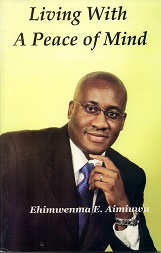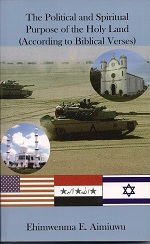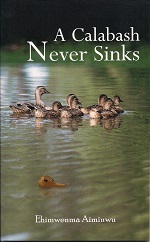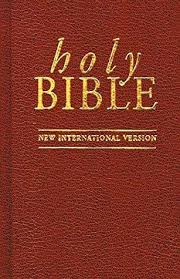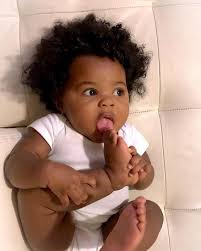U: There are not many people who have tried to study and define Yoruba Philosophy. This is surprising, because you might say that those of us who study the art, the literature, the religion of the Yoruba people are studying various manifestations, symptoms perhaps, of the basic Yoruba interpretation of life. And yet philosophy was introduced rather late into Nigerian universities and most Nigerian philosophers seem more interested in Greek or British philosophy than in African philosophy. I am curious therefore to hear from you how you became interested in the subject and what problems you faced on the long road towards becoming a leading authority in Yoruba philosophy. First tell me something about your background.
S: Well, I was born in Igbara-Oke, a town that lies on the border between Ilesha and Ondo.
U: I know the place well. In the fifties and early sixties it was a favorite stop-over for truck drivers on the way to Benin city. The road side restaurants sold the best pounded yam and the best bush meat in the whole of Nigeria. I enjoyed many wonderful meals there.
S: Yes, that is true. Unfortunately our people lost that trade, when the shorter Lagos-Benin road was built further south. Nowadays that market has almost disappeared.
U: What did your father do?
S: He was a trader. He first went down to Lagos in 1910, buying clothes. Then, in 1912 he established his trade in Igbara-Oke and he would walk to Onitsha …
U: … walk all the way to Onitsha?
S: Yes, in those days there were no trucks. Traders used to trek with a group of carriers. So for many years he would walk between Igbara-Oke an Onitsha which was even then the largest market in West Africa. My mother was trading on the market of Igbara-Oke – but she was also a dyer and a weaver. She must be close to a hundred years old now, because her first child was born in 1918. She had eight children altogether. Four of them died and four of us remain. I am her last born. My mother was a very short woman, that is why she married rather late. She still looked like a child when her age group was getting married. She told me that she married about four years later than the others.
U: Did you still know your grandparents? S:
Yes, my grandfather came from Benin. My father was born in Igbara-Oke, but my grandfather came from Benin in about 1850. He was already a married man then, with about five wives. He had been a high ranking official in the Oba’s palace in Benin. Igbara-Oke was part of the Benin empire then; in fact it belonged to the Oba’s mother, because the Oba divided the empire among members of the family. So when there were reports that Ogedengbe was raiding Igbara-Oke …
U: … you mean Ogedengbe, the famous Ijesa warrior?
S: Yes … and so it became necessary to send somebody to keep watch … somebody to act as a kind of resident or governor looking after the interests of the Oba. In those days the Chief of Igbara-Oke could not make any decision without consulting my grandfather.
U: What about your father’s mother. Was she a Yoruba woman?
S: No. As a matter of fact, she was the daughter of another Benin Hovernor’ who resided in Ogotun, a few kilometers away, because the Oba of Benin had these residents all over the place … My father married the daughter of a man who had come with my grandfather from Benin. Only my maternal grandmother was Yoruba. So actually I am an Edo woman – except that I was born and bred in Igbara-Oke.
U: Did your father speak Yoruba or Edo?
S: My father grew up speaking Yoruba but he made sure that he went back to Benin to learn Edo. My mother could not really speak Edo. She was a very shy woman. She could understand it but did not speak it.
U: Did you consider yourself Yoruba or Edo as a child? Or didn’t you really think about that?
S: I did. I thought of myself as an Edo girl. Because until I left primary school the Oba of Benin used to stop in Igbara-Oke, whenever he traveled to Ibadan. You remember that Benin was part of the Western Region of Nigeria then, and the Oba of Benin had to attend the House of Chiefs in Ibadan. So whenever he was to travel on that road he sent a message some days ahead to my father, and as from seven o’clock in the morning all the Edo people in Igbara-Oke would wait on the road side, drumming and dancing, with a banner, saying: “Welcome, Oba of Benin!” There were about ten Edo families in the town and the local people referred to us as Ado Igbara.
U: Ado meaning Edo?
S: Yes, that’s how they pronounced it. And even the local people would come and gather on that day, because we had different drumming and different dancing … So many of them were curious and they would not go to the farm that day.
U: Were you singing in Edo? S: No, we were singing in Yoruba. The Oba would not leave his car. He would remain seated and talk to my father and then drive away. He did not stop in Igbara-Oke on the way back.
U: Was That Akenzua II? S: Yes, it was Akenzua. So I was calling myself an Edo girl when I was small, but I never learned the language. I can hear a little, but i cannot speak it. My sisters speak Edo very well and my only brother who was a very well known journalist with the “Daily Times” in Lagos has now retired in Benin. You know him well. His name is Ebenezer Williams.
U: What names were you given by your parents? What does the initial “B” stand for? Is it a Yoruba name or a Bini name?
S: It is Yoruba: Bosede – “A girl born on a Sunday”. And I was also named Olayemi, which is Yoruba again, Meaning: “I fell comfortable with dignity.”
U: And how did you get Sophie? It is unusual in Yoruba country.
S: My parents didn’t think of such a name, of course. But we had a headmaster then, who was a friend of the family. I suppose he came to the house often because there were several beautiful young girls and he was unmarried. I was very tiny then. He liked me, he gave me biscuits and I followed him around everywhere. I ended up living with him at the age of eight. It was after I had started school that I was to be baptized and he told my father that he should name me Sophia. My father didn’t know what it meant. But the headmaster thought that I was a clever girl. It is funny, but many years later my supervisor for my PhD thesis at the University of Ibadan said to me: “Why should you call yourself Sophia, just because you have decided to become a philosopher?” And I said to him: “I was given that name long before I knew what it meant.” We used to even write it with an G’ like the capital of Bulgaria.
U: What kind of naming ceremony would you have had? Was it like the Yoruba one, where you give the baby various things to taste – kolanut to teach him that life can be bitter, pepper to teach him that life can hurt and honey to teach him that sweetness always follows pain in life?
S: It would have been similar; only some of the items would have been different. For example, in Benin we can hardly do anything without coconut or snails. Snails are for peace. The snail moves slowly. It is soft. It doesn’t fight, it doesn’t harm. And when you break the shell there is that beautiful blue water. The snail is harmony. There used to be plenty of snails in Benin. In the olden days, when you cooked food and the meat was not enough, you would just go behind the house and pick a dozen snails. They would be everywhere. But today they have gone. The Binis buy snails from the Yoruba.
U: So you were not given any Edo names?
S: No, my brothers were given Edo names. By that time there was a nostalgia to go back to Benin. All my father’s grandchildren were given Edo names. All of them. At that time he would have loved to go home, because he was not fully accepted in Igbara-Oke. He reminded them of the Dolonial’ rule of Benin. There was an incident that nearly forced my father to leave the town. My brother went to Government College Ibadan and during the first term, when he was asked, he said that he was a Benin boy. The people in Igbara-Oke got angry and said: “Why should he call himself a Benin Boy? Was he not born and bred in Igbara-Oke and was not his father born here also?”
U: I gather that your parents were both Christians.
S: Yes, they were Anglicans. My father was baptized in 1912, my mother in 1915, just before they got married. In fact you could say that Igbara-oke was a Christian town.
U: That means, I suppose, that you grew up without knowing anything about Yoruba religion.
S: Since my grandfather had come from Benin we had Olokun in our compound and all the traditional dances were still being performed for him. And the worshippers of the other Orishas would come and celebrate with us. For us children it was very, very interesting; and in the evening, when nobody was watching, we would imitate them. We would dramatize the ritual with all the songs and dances. But my father was always worrying us not to go and watch the Qagan’ ceremonies. As Christians we were supposed to stay clear of all that. to him it was like worshipping the devil. We would be sneaking out whenever there was an Orisha ceremony somewhere, but when we came home we would deny we had been there. One morning during our prayer session my father said to us that he had warned us several times not to worship Orisha, but we had refused to listen to him. He was not going to warn us anymore. But we would have to remember that on the day of judgment, God and the devil would pick their children among all the human beings. Then some of us would say that we were the children of God, but the devil would say: “No, you are mine.” Then there would be an argument. God would say: “They are my children” and the devil would say: “They belong to me.” And then the devil would have to prove his case. Then my father said: “Do you know that each time you are watching the Olorisha the devil is there with his camera, taking the picture of all the worshippers … and on judgment day, when there is an argument, all the devil will have to do is to bring out his pictures. When they have identified you on the photographs, you will be asked: was it a ceremony for God or for the devil? And you will have to answer: it was for the devil.” From that day on, we never went to see the Orisha dancers again, and for years after that I was so afraid. And at night I wondered how I could recapture those Photographs from the devil, because although I had stopped going to the ceremonies – what of the pictures he had taken before?
U: Did you go to school in Igbara-Oke?
S: Yes, I finished my primary school – Standard VI. Than I went to Ile-Ife to what was known as a �Girls School’. It was only a two years course, but it was so intensive that you could come out with a Class IV certificate. In those days the full secondary schoool was six years. But you could leave with a Class IV certificate and find a job fairly easily. Or you could go back to school and work for your Class VI. I went on to Ilesha to the Women Training College. It had been set up by the British, when they were on their way out of Nigeria. It was wholly financed by the British government and thirteen out of fifteen teachers were British. Every single thing we used in that school was imported from Britain: biros, paper – everything. Even our uniforms. I trained as a teacher and began to teach first at Ogotun then later at Ibadan.
U: But your teaching career didn’t last that long. When did you go to university?
S: I went to Moscow in 1963.
U: You went to Moscow to study philosophy?
S: No, no. My husband got a scholarship and I went with him. I wanted to study economics, but at first I had to do a year of preparatory classes. Mainly Russian language, but also some other subjects. But after one year my husband decided to leave the Soviet Union, so I never had a chance to do the proper course.
U: Why didn’t he like it? Was it the life style? The politics?
S: He found the language too hard. He wasn’t a language man. As for me I could pick it up quickly.
U: What was life like in Moscow on campus? Did you have Russian friends?
S: We lived in what they called Cheriomushky: a whole house full of foreign students. Maybe I was biased coming from a completely free country, but I found everything terribly regimented. You could not, for instance, freely listen to the BBC. If you wanted to visit somebody, you had to deposit your passport with the porter of the house. You had to tell him which room you were going to and whom you were going to see. They recorded the time you entered and the time you left. Another fundamental problem was food. Rice was a rare commodity. Sometimes you saw people queuing in front of a supermarket. They told you that rice was going to be sold. After Queuing for three of four hours, somebody would come out of the shop and say: “What are you waiting for?” We said: “We are waiting for rice.” Then he would say: “But I don’t have rice!” and everybody would go away without saying anything. In 1964 I went to the Studienkolleg in Cologne while my husband went to the United States to continue his studies. I didn’t have A levels so I couldn’t enter a German university straight. I had to do another preparatory year. It was more or less like what I had to do in Moscow, except that this time I studies German. I did well, but I didn’t enter a German university, where I had been offered a full scholarship in philology; I went to the US instead. But after three months I decided to return home, because all my children were at home. I already had three children then. I had made sure I gained admission to the University of Lagos, before I returned home.
U: You went on a long Odyssee abroad, that in the end didn’t get you anywhere. But I suppose that it was all to the good: if you had stuck it out overseas and completed one of those courses you would never have become a philosopher.
S: That’s right. And when I returned home I was still not thinking about Philosophy. I had been admitted for a BA Education an my main subject was to be English. But in those days the University was very relaxed about things: as long as you had a letter of admission you could go around and shop for subjects. You could do anything, as long as the Department was willing to have you. I did not really want to get back into school teaching. I first decided to do English, but some of the students said to me: “Madam, you better be careful. Because if you want to do English you may never end up with a degree from this university.” I said: “Why?” They said that Wole Soyinka was their teacher and he had passed only two students that year! So I ran away. I didn’t want to waste my time, because I already had three children. I was looking around for subjects I could do. I had O levels in history and geography and I needed a third subject. Philosophy was the only department that was willing to take me, because they were the only ones who had no prerequisites. The system was that after the first year you dropped one subject and carried on with two. Then you did �Combined Honors’ in the remaining two subjects. Or, if you did very well in one subject, you could even end up with 4ingle Honors’. I had intended to drop philosophy. But at the end of the first year my worst subject was history. I discovered that I didn’t have the retentive memory that an historian needs. So I dropped history and decided I would try to aim at 4ingle Honors’ in geography. If you could score more than 60 % in one subject, you would be allowed to do 4ingle Honors’ in it. At the end of the second year I qualified to do geography, but I also qualified to do philosophy. I got 62 % in geography and 64 % in philosophy. It was difficult for me to make a choice: geography was willing to take me. At that stage I had already discovered my love for philosophy, but the problem was, that they had only three lecturers and the professor said they couldn’t accept a 4ingle Honors’ student until they got another lecturer. But the new member of staff wasn’t expected for some months. So I decided I was going to run two 4ingle Honors’ courses concurrently. I went to geography and I went to philosophy. But as soon as the fourth lecturer arrived in the Philosophy Department I dropped geography. I became very embarrassing, because the geography professor said: “She is my student!”
U: So you got into philosophy almost by accident. Or was it Esu blocking all the other roads on which you attempted to travel – until you hit upon the right one? What finally attracted you to philosophy?
S: It was my nature. I found it so easy. I wasn’t good at learning facts. But I could look at critical issues. I could take a sentence and pull it to pieces. So I was at home. I was comfortable …
U: What kind of philosophy did they teach you at the University of Lagos? I suppose it wasn’t African philosophy.
S: No, no. The first year we did Greek philosophy: starting with Thales and down to Plato and Aristotle. The second year we did British philosophy: Hume, Locke, Hubes – all of them. In the final year we did British philosophy again with the one exception our English head could not ignore: Immanuel Kant Hat was the only German philosopher we studied. came out top of the class: second class Upper Division-Which was thee best you could hope for in any honors subject those days.
S: It was Dr Danquah who first got me interested in African Philosophy. But he was on that Egyptology thing, trying to trace the origin of African philosophy to Egyptian religion.
U: Another Detour!
S: Yes. Although his father had written The Concept Of God, he had not actually stressed that point. The grand old man was not interested in proving to the west ,that Thales had borrowed the concept of god or mathematics or whatever from Egypt.
U: It still fashionable. Cheikh Anta Diop and so many others still claim that there was a west African civilization from which the Greeks derived their ideas.
S: Yes, but I had a feeling right from the start: if it is true that the Greeks came and stole African Philosophy-what happened to the Africans? You can steal my ideas, but you cant steal the brain from my head. Forget the borrowings. I do not mind what they took. But do we have anything left today-which I can show? So my first concern was to find records of Yoruba thought. I went to the Yoruba Department and asked them wether I could have access to records of Yoruba thought before colonialism. There was an Egba poet called Sobo Arobiodu. I had heard of him even as a small girl. My father had been quoting his poems and his proverbs. I was so excited to find that Prof S. A. BaBalola and Moses Lijadu had recorded him and that I could listen to this material. But I was so disappointed to discover that he had been a Christian! He was talking about Jesus! He was a hardly a Yoruba thinker! But the Yoruba Department told me they had no other records predating him. So I decided to look into Ifa oracle Texts.
U: Now tell me one thing: are you still the only one trying to establish Yoruba thought as a philosophy? Are there others now working in this field or do you still come up against a lot opposition?
S: There are now quite a number of lecturers and students who wants to establish African philosophy. But the fundamental difference is :what basis for the basis for their claims? If you look at my book “Witchcraft, Reincarnation and the God-head, “my claims are based on what people are saying in the street. How they describe a witch or what reincarnation means to them-for example Christian ideas have influenced peoples thinking people are not even aware of such influences.
Dr Sophie Oluwole is a Senior Lecturer in Philosophy at the University of Lagos {Nigeria}. She is currently National President of the Nigerian Philosophical Society. She is the editor of “Imodooye”-a journal of Yoruba philosophy. In 1993 Dr. Oluwole was visiting lecturer at the the University of Bayreuth under the auspices of a special research program {“SFB214”-Identity in Africa}.
This is an excerpt of an interview Dr Oluwole had with Ulli Bier at the Iwalewa House,University of Bayreuth.

